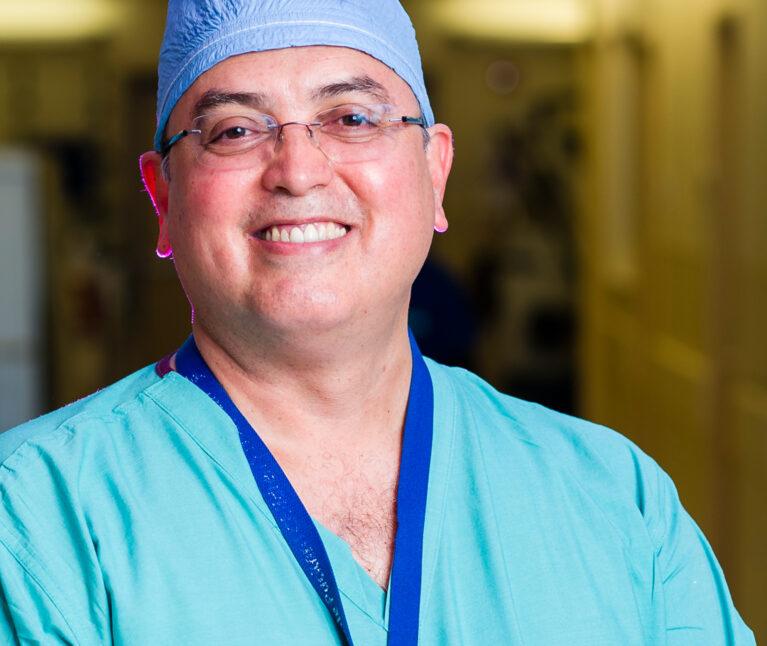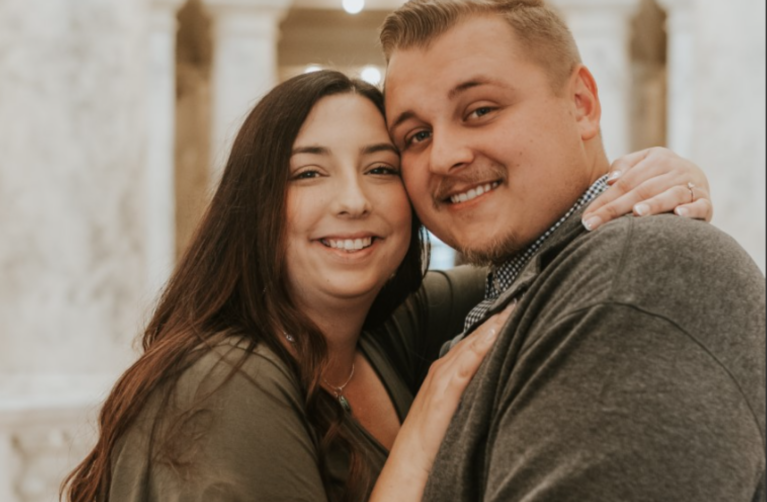Meet Dr. Concepcion
Waldo Concepcion, MD, FACS, is director of Pediatric Kidney Transplantation at Lucile Packard Children’s Hospital and professor of surgery at Stanford School of Medicine. He performs more than 30 transplant surgeries each year and conducts research to improve both surgical techniques and quality of life for patients, throughout their childhood and into adulthood.
Why did you become a doctor?
I always wanted to be a surgeon, even when I was young. My parents were missionaries — my father worked in lumber and my mother taught crafts — so we were brought up to believe in the importance of helping others.
How did you get started in the field of transplantation?
I was fortunate to have trained and worked alongside some of the most brilliant pioneers in transplantation. I started out with Leonard Bailey, MD, at Loma Linda University Medical Center. Back then, babies born with hypoplastic left heart syndrome — the so-called “blue babies” — had terrible outcomes. Dr. Bailey spent more than a year researching how to improve the procedure to treat this condition and made history when he transplanted the heart of a baboon into Baby Fae.
That was my start. But because I was the youngest applicant to his program, I was told I needed to get more training and research experience. I went to Pittsburgh School of Medicine to work with Thomas Starzl, MD, PhD, who is considered the father of modern transplantation. I literally lived on the 11th floor of that hospital, taking care of about 30 kids going through transplant. I lived and breathed transplant surgery.
Tell us about one of your most memorable patients.
There was a little girl from Texas, one of my first patients. She had already had numerous surgeries for complications from liver surgery, starting from when she was 10 months old, and she looked malformed from all the medication she had to take. She required a 10-hour liver transplant surgery. Just 30 hours after surgery, she looked completely normal. It was so gratifying to give her a real future.
What are the challenges you face?
Transplants require very specific, complex skills, and with children you have to be extremely precise. You need impeccable surgical technique. There are so few people doing it and there are so many variables, and every surgery is unique. We need to develop better medications because there are still too many side effects. And there simply are not enough organs available, so we need to encourage more organ donation and continue to explore new options like tissue engineering.
How has the field changed?
Improved immunosuppressant drugs have greatly improved survival rates. Today’s preservation solutions allow us more time between removing an organ from a donor and transplanting it into the recipient. New surgical techniques have improved so that we can operate on younger children. And research has allowed us to change protocols, such as using monoclonal antibodies instead of steroids for immunosuppression, with fewer side effects.
And recovery is quicker: In 2005, a pediatric kidney transplant patient stayed in the hospital an average of 21 days; today that child can go home in 11. By creating outstanding surgical outcomes and shortening the length of hospitalization needed post-transplant, we have also improved the affordability of care.
Why Packard Children’s?
We have the largest and most successful pediatric kidney transplant program in the United States, with a 100-percent survival rate. We take care of the smallest kids, with the most complex conditions. And we have a strong outreach network, so kids can stay close to home and don’t have to travel as often for their care.
Packard Children’s is a special place. We’re organized in a way that improves expertise and promotes the safest pathway of care. There’s an integrated system of active research and an institutional dedication to teamwork that includes everyone from the surgeon to the nurses to the parents.
What inspires you?
It’s all about the children. So if there’s a transplant at midnight or five transplants in two days, they’re all going to be done, because you don’t know when the next organ will be available. I consider it the greatest honor that these children and their families put their trust in our hands. I have charged myself to be the best I can, and everything I do is to try to make things better for them.
Tell us something about yourself that people might not expect.
My ancestors originally came from Spain, changed their name, and founded a town in northern Panama called La Concepcion, where my parents grew up. My brother found the original family crest on one side of the family; when I get a chance I’d like to go to Spain to track down the family crest on the other side.
I love classical music and opera. My wife, Rosie, and I have three daughters, Christine, Katherine, and Zoe.
This article appeared in the Lucile Packard Children’s News publication in Fall 2013.





